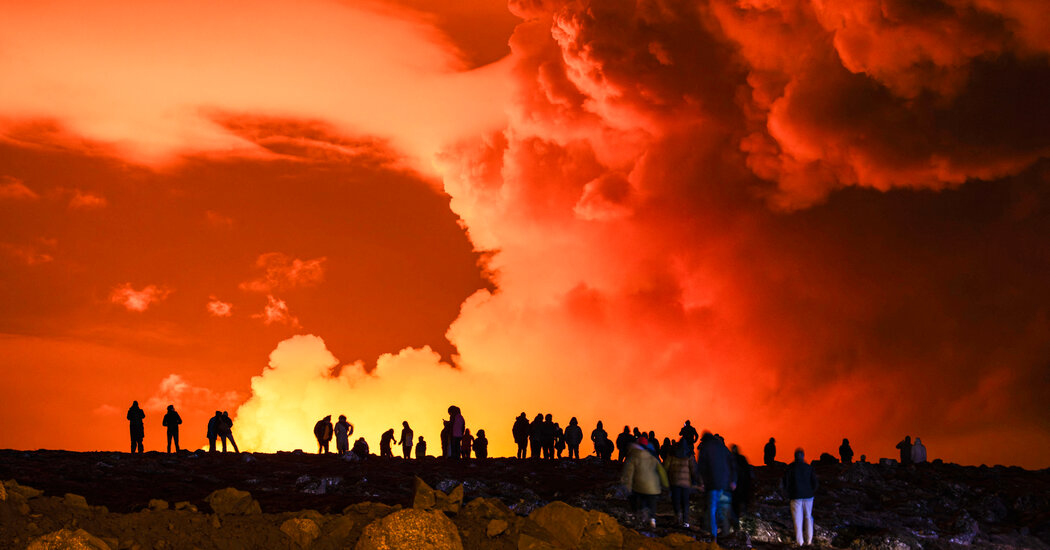The Blue Lagoon resort in the south of Iceland is a scenic network of steaming azure pools surrounded by dark rocks, where tourists dip in the geothermal water, have spa treatments and enjoy what the resort advertises as “a universe of radiant well-being.”
But last week, a stream of radiant lava burst from a crater a few miles from the resort, forcing it to evacuate hundreds of guests, in yet another eruption of a volcano system in the Reykjanes Peninsula that had been dormant for 800 years.
The outbursts begun in 2021, and the eruptions and earthquakes in the peninsula have destroyed some houses and forced villagers from their homes. One construction worker went missing in the town of Grindavik after falling down a crack caused by an earthquake.
The effects of the volcanic eruptions have rippled out beyond the peninsula, disrupting the tourism operations of a country that relies heavily on visitors.
Arnar Már Ólafsson, director general of the Icelandic Tourist Board, said that when a looming volcanic eruption led to the evacuation of Grindavik in November, it resulted in global anxiety that brought a drop in tourists.
“A spouting volcano doesn’t sound very inviting,” he said.
Icelandair, the country’s national airline, said it also saw a “significant negative impact on bookings” in the last months of 2023. And the low-cost Icelandic airline Play said that news of the eruption “cooled demand for Iceland as a destination.”
The tourism board did not release an estimate for the financial losses, and the airlines, while saying they experienced significantly slowed sales, did not quantify them.
Airline officials and the tourism board director stated emphatically in interviews and in the national news media that the reaction was unwarranted because the eruptions did not represent a direct threat to visitors or flights. They accused the news media of “alarmism.”
“In the international press, it just looks as if Iceland is ruined,” Birgir Jónsson, then Play’s chief executive, said in an interview published in December by a financial magazine.
Tourists used to flock to the Reykjanes Peninsula to watch the Northern lights or bathe in the waters of the Blue Lagoon resort. But since the November earthquakes, the Blue Lagoon has had to close for some days. It said in a statement on Wednesday that it had also shut down from March 16 until at least Thursday and would continue to follow the authorities’ safety guidelines.
The Northern Light Inn,…
Click Here to Read the Full Original Article at NYT > Travel…
